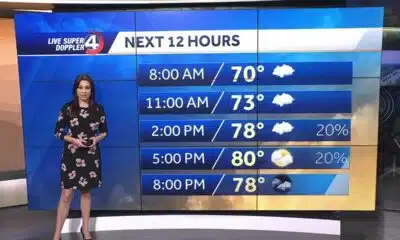(The Center Square) – First-term Democratic Gov. Josh Stein on Wednesday morning proposed a $67.9 billion two-year budget for North Carolina, pushing investments in the workforce, family life and public education.
Josh Stein, North Carolina governor
The proposal is without specific line items toward recovery of Hurricane Helene. Rather, Stein said his administration will continue working with Republican majority lawmakers in the General Assembly – and submit additional recommendations in a separate request – on relief packages that already total $1.1 billion with another $524 million awaiting his signature.
“We must create a balanced budget,” Stein wrote in the 250-page document unlikely to be adopted verbatim with Republicans holding advantages of 30-20 in the Senate and 71-49 in the House of Representatives. “Our revenues are adequate in the first year of the biennium, but by the time of the next year, we will face fiscal challenges. Therefore, I freeze our corporate and personal income taxes at their current rates.”
Republicans’ assistance to tax rates has been cited as a source for the state to eclipse 11 million in population, ninth largest in America, and continue to attracted people from other states where the burden is greater.
The pattern for the state budget is a proposal from the governor, one each from the two chambers of the Legislature, and negotiations toward a final spending plan. June 30 is the deadline; often, it comes later.
In 2015, the GOP majorities with Republican Gov. Pat McCrory enacted House Bill 1030 that addresses a failure to reach a spending plan on time. In such cases, the state continues operating on the most recent and there is no government shutdown.
Kristin Walker, Stein’s budget director, said the plan allots for less revenue in the second year.
Stein’s plan has tax cuts for families with young children, child care costs and working families. He wants a return of the back-to-school shopping tax holiday.
Quarrels about public education funding are synonymous with Republicans and Democrats. Stein proposes raising starting teacher pay from $42,800 to $53,000; 10.6% average raises over the two years; and spends $10 million each year to restore 10% supplements in master’s pay for more than 1,000 teachers with advanced degrees in the subjects they teach.
Funding the master’s pay would be achieved in part by a limit in the Opportunity Scholarship Program that gives school choice to any student regardless of family income levels and regardless of choosing public, including charters, or private schools. No new money would be approved for households with annual income greater than $115,000. His plan is to phase out the program by 2027.
Education spending would rise more than $1 billion to $12.9 billion in 2025-26, and to $13.3 billion in 2026-27. That’s between 38% and 39% of the full budget each respective year.
Stein is proposing free community college for students attaining noncredit credentials for sought-after skills, the executive summary says.
All state employees would get a 2% raise and a $1,000 retention bonus in Stein’s first year. He proposes a 6.5% increase in wages for correctional officers, and 3% for other lawmen.
Stein has proposed funding 330 new school resource officer positions for elementary and middle schools, and additional training.
“To continue a trajectory of growth,” Stein writes in the budget letter to leaders of the General Assembly, “the state must step up to invest in quality public education and robust opportunities for career and technical training. My budget also emphasizes programs to promote our workforce, including apprenticeships, to ensure that our people are ready to take on the high-demand, high-paying jobs of tomorrow. No state will outwork North Carolina when it comes to workforce development.”












































